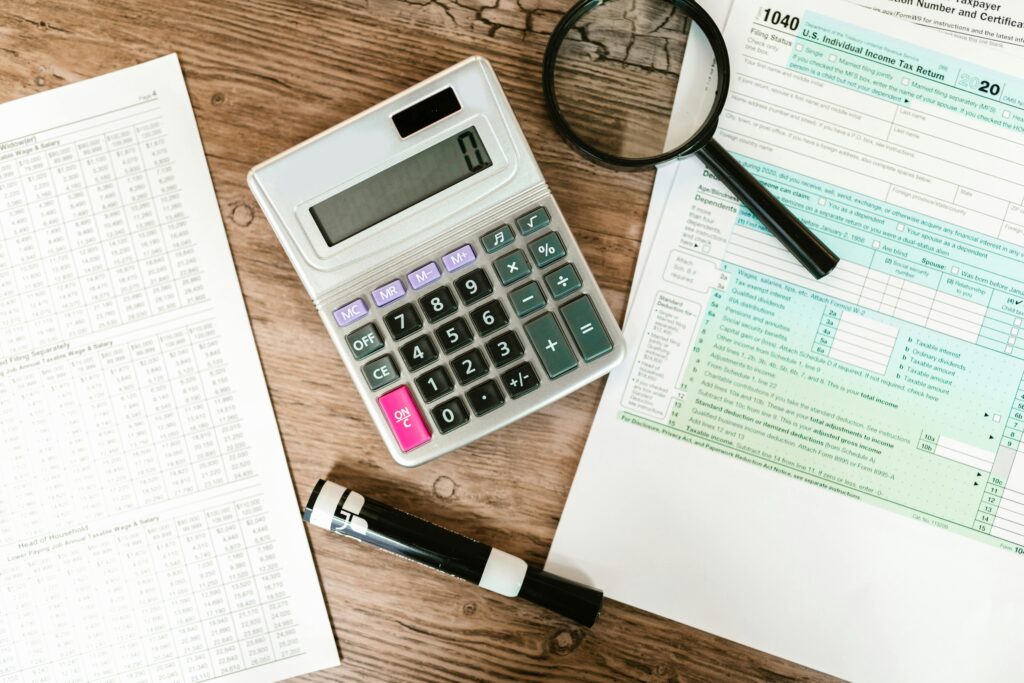As digital assets become more integrated into everyday portfolios, reporting cryptocurrency gains on your tax return has gone from optional to essential. If you’re asking, “do you have to report crypto on your taxes?”—the answer in 2025 is a firm yes.
Whether you sold Bitcoin, swapped Ethereum, earned staking rewards, or received airdropped tokens, the IRS now expects detailed reporting. And it’s not just about major gains: even small transactions can trigger a filing requirement. The revised digital asset question on IRS Form 1040 is just the start—non-compliance can lead to audits, penalties, and unnecessary stress.
But how are crypto gains taxed, and how should you report them accurately? The answer depends on your activity type, holding period, and how well your records are maintained. Crypto is taxed as property, which means capital gains and ordinary income rules apply—sometimes within the same transaction.
In this guide, we’ll explore what’s considered taxable (and what isn’t), how to calculate your gains, which forms to use, and how to avoid the most common crypto tax mistakes.
Table of Contents
- Why crypto reporting matters now
- Taxable vs. non-taxable crypto events
- How crypto gains are taxed: Short-term vs. long-term
- Forms and lines: Where crypto shows up on your return
- Common reporting mistakes and how to avoid them
- How Harness can simplify crypto tax filing
- What’s changing—and how to stay ahead
Why crypto reporting matters now
Over the past few years, the IRS has made one thing clear: cryptocurrency isn’t flying under the radar anymore. In 2025, digital asset transactions are a top enforcement priority, and the IRS has expanded both the scope and visibility of what’s being tracked.
If you filed a federal return in 2024 or 2025, you likely noticed a new question front and center:
“At any time during the year, did you receive, sell, exchange, or otherwise dispose of a digital asset?”
This question now appears on Form 1040, 1040-SR, 1040-NR, and across a range of business returns, including Forms 1065, 1120, and 1120-S. It’s no longer limited to active traders—every taxpayer must answer, regardless of whether they had crypto activity that year.
Answering incorrectly can lead to scrutiny, especially as reporting forms like 1099-DA roll out and broker systems catch up. And for those who fail to report gains or income from crypto transactions, penalties can stack quickly—especially if underreporting is flagged through automated matching systems.
The bottom line: treating crypto like an afterthought during tax season is no longer an option. Getting your reporting right is essential, not just for compliance, but to maintain long-term financial clarity and confidence.
Taxable vs. non-taxable crypto events
Not every crypto move triggers a tax bill—but many do, and distinguishing between taxable and non-taxable events is key to accurate reporting.
Before you decide if you “owe” on a given transaction, ask this: did you realize a gain or receive crypto in a way that counts as income?
Taxable crypto events
These transactions generally result in a reportable gain or income:
- Selling crypto for fiat currency (e.g., selling BTC for USD)
- Trading one crypto for another (e.g., swapping ETH for SOL)
- Using crypto to pay for goods or services
- Receiving crypto through mining or staking
- Receiving airdropped tokens
- Receiving crypto as payment for work or services
Each of these requires you to calculate the fair market value (in USD) at the time of the transaction and compare it to your cost basis.
Non-taxable crypto events
Some common crypto actions don’t trigger taxes—though they may still need to be tracked for future reporting:
- Buying and holding crypto
- Transferring crypto between your own wallets or exchanges
- Receiving crypto as a gift
- Gifting crypto (within annual limits)
- Donating crypto to a qualified 501(c)(3) organization
That said, these non-taxable events can affect future tax calculations, so it’s critical to document them carefully—especially wallet transfers and cost basis tracking.
How crypto gains are taxed: Short-term vs. long-term
Once you’ve identified a taxable crypto transaction, the next step is determining how that gain is taxed. For most individuals, the key distinction is holding period: did you hold the asset for more than one year before disposing of it?
Short-term capital gains
If you held your crypto for one year or less before selling, swapping, or using it, any profit is taxed as short-term capital gains. These are taxed at your ordinary income tax rate, which could range from 10% to 37% depending on your total income in 2025.
This treatment applies even if the gain was just a few dollars—and it’s why accurate cost basis tracking is critical, especially for frequent traders.
Long-term capital gains
If you held the crypto for more than one year, gains are typically taxed at long-term capital gains rates, which are more favorable:
- 0% for individuals with taxable income up to $47,025 (single) or $94,050 (married filing jointly)
- 15% for most middle-income filers
- 20% for high-income earners
These brackets are indexed annually and reflect 2025 thresholds.
Holding assets long enough to qualify for long-term rates can significantly reduce your tax liability. But with crypto volatility and evolving tax rules, timing alone isn’t always enough—you still need documentation that supports your timeline.
Forms and lines: Where crypto shows up on your return
If you’ve had any crypto activity this year, it’s not just a matter of checking a box. Digital asset reporting now spans multiple IRS forms—and each one serves a specific role in capturing how crypto gains are taxed.
Here’s where you’ll need to pay attention.
Form 1040: the digital asset question
Every taxpayer must answer the digital asset question on the front of Form 1040 (and 1040-SR, 1040-NR, etc.). Even if you didn’t have any crypto gains, you’re still required to respond.
Form 8949: sales and dispositions
Anytime you sell or exchange crypto, you’ll report each transaction on Form 8949, listing:
- The asset
- Date acquired and sold
- Proceeds from the sale
- Cost basis
- Resulting gain or loss
This form distinguishes between short- and long-term transactions and helps calculate your total capital gains or losses.
Schedule D: capital gain summary
Your totals from Form 8949 feed into Schedule D, where you summarize overall capital gains and losses. This is the same form used to report stock sales, and crypto follows the same basic rules.
Schedule 1: other income
If you earned crypto through mining, staking, airdrops, or as payment, those amounts are reported as ordinary income on Schedule 1, Line 8z (“Other income”).
For self-employed earners or those who received crypto in exchange for services, you may also need to file Schedule C and pay self-employment tax on top of regular income tax.
Common reporting mistakes and how to avoid them
As crypto reporting becomes more rigorous, small missteps can lead to big problems. Here are the most common mistakes we see and how to avoid them.
1. Not reporting because “it wasn’t that much”
Even small trades or earnings count. The IRS doesn’t set a minimum threshold for reporting crypto gains or income. If you sold, swapped, or earned—even a few dollars—you must report it.
2. Skipping cost basis tracking
Failing to record what you paid for an asset (your cost basis) can lead to inaccurate gain calculations—and overpaying in taxes. Use crypto tax software or work with an advisor who can help you reconstruct cost basis across wallets and exchanges.
3. Misclassifying income
Some taxpayers report staking or mining rewards as capital gains instead of ordinary income. This can lead to underreporting and trigger IRS flags. Remember: how you acquired the asset matters just as much as how you disposed of it.
4. Forgetting wallet transfers are non-taxable
Moving crypto between your own wallets or accounts isn’t a taxable event—but you still need to document the original acquisition details for future basis tracking.
5. Ignoring foreign accounts
Holding crypto on a non-U.S. exchange? You may have FBAR or FATCA filing obligations, depending on value thresholds. Failing to disclose offshore holdings can result in severe penalties.
Not sure how to stay compliant? Our crypto tax CPA guide walks through common pitfalls and how to work with a professional.
How Harness can simplify crypto tax filing
Filing crypto taxes can feel overwhelming—but it doesn’t have to be. At Harness, we combine purpose-built tools with experienced advisors to help you navigate complexity, avoid mistakes, and file with clarity.
No matter if you’re a casual investor or a power user with wallets across multiple chains, Harness can help:
- Smart transaction classification: Automatically organize transactions by type—income, capital gains, swaps, and more—so you know what’s taxable and what’s not.
- Cost basis tracking across wallets: Lost track of how much you paid for that 2021 token? We help you reconstruct basis even if you’ve moved assets across exchanges or wallets.
- Integrated crypto tax software: Access best-in-class reporting tools and output-ready IRS forms like Form 8949and Schedule D—all in one place.
- Advisor-led tax strategy: Work with crypto-competent tax professionals who understand the nuances of staking, DeFi, airdrops, and beyond. You don’t have to go it alone.
We’ve built a platform designed to make your crypto tax process more accurate, less stressful, and tailored to your broader financial picture.
What’s changing—and how to stay ahead
As crypto continues to grow, so does the IRS’s approach to digital asset taxation. With Form 1099-DA implementation underway, increased broker transparency, and sharper enforcement around unreported activity, crypto tax compliance is no longer optional—it’s expected.
Understanding how crypto gains are taxed, what counts as income, and whether you have to report crypto on your taxes isn’t just a one-time task—it’s now a core part of your annual financial planning.
Harness is here to help you stay ahead. We offer a smarter, more personal way to manage your crypto taxes—with purpose-built tools, access to expert advisors, and guidance that evolves alongside regulation.
Take control of your crypto reporting and plan with confidence with Harness today.
Disclaimer:
Tax related products and services provided through Harness Tax LLC. Harness Tax LLC is affiliated with Harness Wealth Advisers LLC, collectively referred to as “Harness Wealth”. Harness Wealth Advisers LLC is a paid promoter, internet registered investment adviser. Registration does not imply a certain level of skill or training. This article should not be considered tax or legal advice and is provided for informational purposes only. Please consult a tax and/or legal professional for advice specific to your individual circumstances. This article is a product of Harness Tax LLC.
Content was prepared by a third-party provider and not the adviser. Content should not be regarded as a complete analysis of the subjects discussed. Although we believe the content is reliable, it is not guaranteed as to accuracy and does not purport to be complete nor is it intended to be the primary basis for financial or tax decisions.


